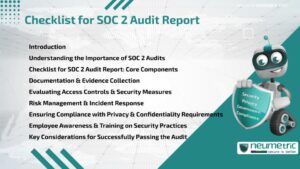Table of Contents
ToggleIntroduction
In the ever-evolving landscape of business operations, APAC Data Protection Compliance refers to the set of rules & regulations that businesses in the Asia-Pacific [APAC] region must adhere to in order to safeguard the privacy & security of personal data. It encompasses a range of principles & practices designed to ensure responsible & lawful handling of sensitive information.
Data protection holds paramount significance for businesses operating in the APAC region. Beyond the ethical considerations, maintaining robust data protection practices fosters trust between businesses & their clientele. It not only safeguards the privacy of individuals but also shields companies from potential legal repercussions. As data breaches become more prevalent, the importance of securing sensitive information has become a critical aspect of business sustainability.
Navigating the APAC Data Protection landscape involves understanding the various laws & regulations in place across different countries. These regulations set the framework for how businesses collect, process & store personal data. From the General Data Protection Regulation [GDPR] in the European Union to specific regulations in individual APAC countries, a comprehensive overview of these laws is essential for businesses to operate ethically & legally in the region.
Understanding APAC Data Protection Landscape
Key Data Protection Laws in APAC
- GDPR in the European Union & its Implications for APAC: The General Data Protection Regulation [GDPR] in the European Union has far-reaching implications for businesses operating in the APAC region. While not directly applicable, it serves as a benchmark for data protection standards. Many APAC businesses, even outside the EU, find it advantageous to align their practices with GDPR principles to ensure a global standard of compliance.
- Overview of Individual APAC Countries’ Data Protection Laws: APAC is a diverse region with each country having its own set of data protection laws. From Japan’s Act on the Protection of Personal Information [APPI] to Singapore’s Personal Data Protection Act [PDPA], understanding the nuances of these regulations is crucial for businesses engaging in cross-border activities. Navigating this regulatory landscape demands a tailored approach that recognizes the unique requirements of each jurisdiction.
Commonalities & Differences Among APAC Countries Data Protection Regulations
While each APAC country has its own data protection laws, there are commonalities that reflect the shared concern for individual privacy. Common elements include requirements for obtaining consent for data processing, ensuring the security of personal information & providing individuals with rights over their data. Understanding both the commonalities & differences helps businesses establish a comprehensive yet flexible approach to data protection compliance.
Key Challenges in Achieving APAC Data Protection Compliance
Despite the shared goals of protecting personal data, businesses in the APAC region face challenges in achieving compliance. Language barriers, varying legal interpretations & the dynamic nature of technology pose hurdles. Additionally, the diverse cultural contexts across APAC countries necessitate nuanced approaches to data protection. Striking a balance between global best practices & local nuances remains a persistent challenge for businesses aiming for APAC data protection compliance.
Navigating APAC Data Protection Laws
Data Processing Principles
- Lawful Processing of Personal Data: Ensuring the lawful processing of personal data is a fundamental principle of APAC data protection laws. Businesses must have a legal basis for collecting, processing & storing personal information, emphasising transparency & fairness in their practices.
- Consent Mechanisms & Requirements: Obtaining consent is a cornerstone of data protection compliance. APAC regulations often require businesses to seek explicit & informed consent from individuals before processing their personal data. Understanding & implementing effective consent mechanisms are critical to meeting compliance standards.
Rights of Data Subjects
- Access to Personal Data: Individuals have the right to access their personal data held by businesses. This transparency empowers individuals to understand how their information is used, promoting trust between businesses & their customers.
- Rectification & Erasure Requests: Data subjects also have the right to request the correction or deletion of inaccurate or outdated personal information. Acknowledging & addressing these requests promptly is essential for maintaining compliance.
- Data Portability: Some APAC data protection laws grant individuals the right to receive their personal data in a commonly used format, facilitating the transfer of information between service providers. Understanding & facilitating data portability is crucial for businesses operating in the region.
Data Protection Impact Assessments [DPIAs]
Conducting Data Protection Impact Assessments [DPIAs] is a proactive approach to compliance. Businesses must assess the potential risks & impacts of their data processing activities on individuals’ privacy. DPIAs help identify & mitigate potential privacy risks before they escalate.
Appointment of Data Protection Officers [DPOs]
Appointing Data Protection Officers [DPOs] is a common requirement under APAC data protection laws. DPOs play a pivotal role in ensuring compliance, providing expertise & acting as a point of contact for both regulatory authorities & data subjects. The appointment of DPOs demonstrates a commitment to data protection at an organisational level.
Implementing Data Protection Policies & Procedures
Developing a Comprehensive Data Protection Policy
Developing a comprehensive data protection policy is foundational to APAC data protection compliance. This policy outlines the principles, procedures & guidelines that employees must follow when handling personal data. A clear & well-communicated policy serves as a roadmap for maintaining compliance across all levels of the organisation.
Employee Training & Awareness Programs
Ensuring that employees are well-informed & aware of data protection policies is crucial for effective implementation. Training programs should educate employees on the importance of data protection, the specific requirements of APAC laws & their role in maintaining compliance. This creates a culture of responsibility & accountability within the organisation.
Data Breach Response & Notification Protocols
Having robust data breach response & notification protocols is essential in the event of a security incident. APAC data protection laws often require businesses to promptly respond to breaches, investigate their causes & notify relevant authorities & affected individuals. Establishing clear & efficient procedures helps mitigate potential damages & demonstrates a commitment to addressing data breaches responsibly.
Cross-Border Data Transfers within APAC
For businesses operating across borders in the APAC region, understanding & managing cross-border data transfers is critical. Some countries may impose restrictions on the transfer of personal data outside their borders. Implementing mechanisms such as standard contractual clauses or binding corporate rules ensures that data transfers comply with the laws of each jurisdiction, promoting seamless cross-border operations while adhering to data protection requirements.
Technological Solutions for APAC Data Protection Compliance
Data Encryption & Security Measures
Implementing robust data encryption & security measures is paramount in ensuring APAC data protection compliance. Encryption adds an extra layer of protection to sensitive information, safeguarding it from unauthorised access. Coupled with comprehensive security measures, businesses can fortify their defences against potential threats & breaches.
Role of Artificial Intelligence in Data Protection
Artificial Intelligence [AI] plays a growing role in enhancing data protection efforts. From automating compliance checks to identifying potential security vulnerabilities, AI technologies contribute to more efficient & proactive data protection measures. Understanding & leveraging AI can be instrumental in staying ahead of evolving threats.
Data Protection by Design & Default
Incorporating data protection principles into the design & default settings of systems & processes is a proactive approach. By embedding privacy features from the outset, businesses can ensure that data protection is an integral part of their operations, minimising the risk of non-compliance.
Importance of Regular Data Audits & Assessments
Regular data audits & assessments are essential for staying on top of compliance. Periodic reviews of data processing activities help identify vulnerabilities & ensure that data protection measures remain effective over time. This proactive approach is crucial in the dynamic landscape of data protection.
Conclusion
In conclusion, navigating APAC data protection compliance demands a multifaceted approach. From understanding the intricacies of regional laws to implementing comprehensive policies & leveraging technological solutions, businesses must prioritise safeguarding personal data. As we move forward, fostering a culture of data protection within APAC businesses becomes pivotal.
By recapitulating key points & encouraging a collective commitment to data protection, we pave the way for a secure & responsible digital future in the APAC region. In the ever-evolving landscape, staying informed, proactive & technologically adept is the key to ensuring compliance & building trust. Embrace the journey towards a more secure data environment in your business operations.
Frequently Asked Questions [FAQ]
Why is it essential for businesses in the APAC region to align with GDPR principles, even if they are not based in the European Union?
Aligning with GDPR principles is crucial for global data protection standards. While not directly applicable, adopting GDPR practices ensures a higher level of data security, fostering trust with customers & minimising legal risks.
How can businesses strike a balance between common data protection elements & the unique requirements of individual APAC countries?
Achieving a balance involves understanding the shared principles across APAC countries, such as consent & data security, while respecting the specific nuances of each jurisdiction. A tailored, flexible approach is key to compliance.
What technological solutions can businesses leverage to enhance data protection in the APAC region?
Businesses can enhance data protection through measures like robust data encryption, leveraging Artificial Intelligence [AI] for proactive compliance checks, embedding data protection into system designs & conducting regular data audits to identify & address vulnerabilities.





